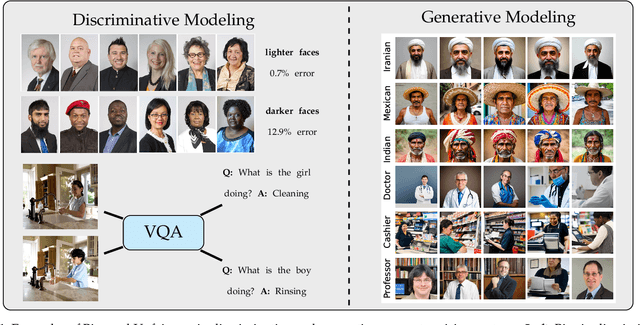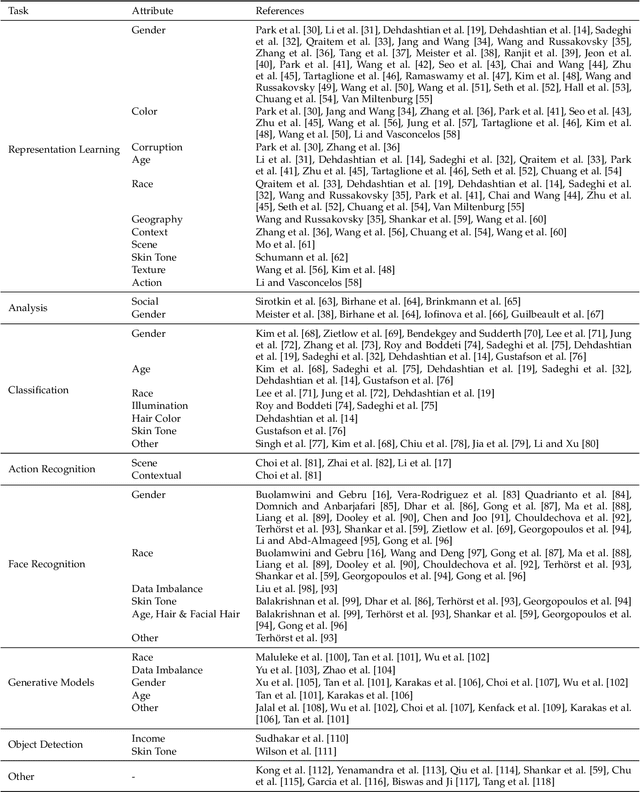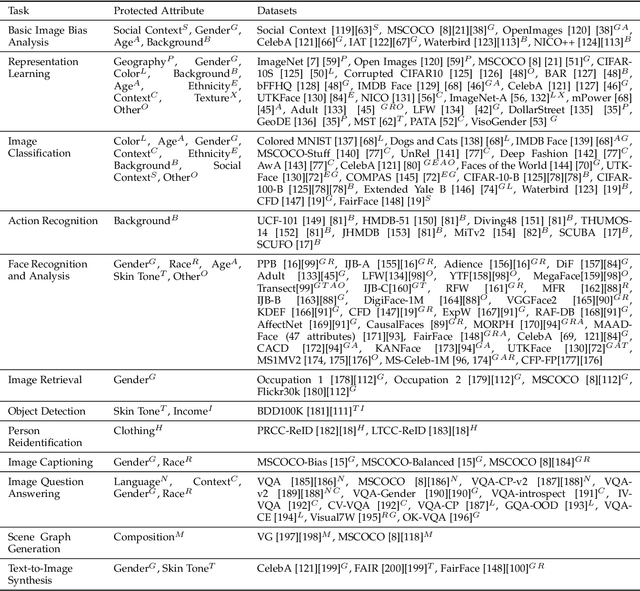Fairness and Bias Mitigation in Computer Vision: A Survey
Paper and Code
Aug 05, 2024



Computer vision systems have witnessed rapid progress over the past two decades due to multiple advances in the field. As these systems are increasingly being deployed in high-stakes real-world applications, there is a dire need to ensure that they do not propagate or amplify any discriminatory tendencies in historical or human-curated data or inadvertently learn biases from spurious correlations. This paper presents a comprehensive survey on fairness that summarizes and sheds light on ongoing trends and successes in the context of computer vision. The topics we discuss include 1) The origin and technical definitions of fairness drawn from the wider fair machine learning literature and adjacent disciplines. 2) Work that sought to discover and analyze biases in computer vision systems. 3) A summary of methods proposed to mitigate bias in computer vision systems in recent years. 4) A comprehensive summary of resources and datasets produced by researchers to measure, analyze, and mitigate bias and enhance fairness. 5) Discussion of the field's success, continuing trends in the context of multimodal foundation and generative models, and gaps that still need to be addressed. The presented characterization should help researchers understand the importance of identifying and mitigating bias in computer vision and the state of the field and identify potential directions for future research.
 Add to Chrome
Add to Chrome Add to Firefox
Add to Firefox Add to Edge
Add to Edge